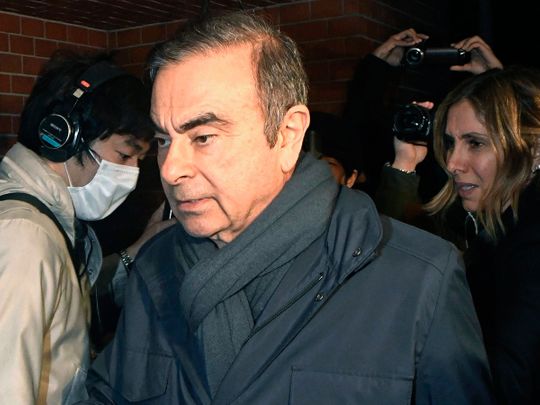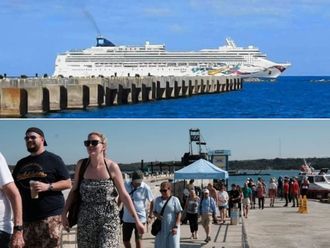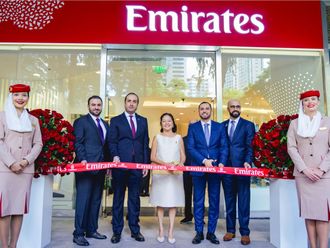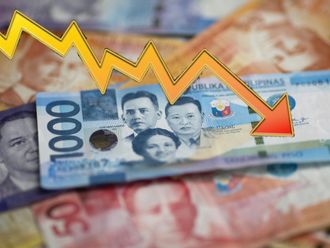
A U. judge authorized the extradition of two American men to face charges in Japan that they helped former Nissan Motor Co. Chairman Carlos Ghosn escape criminal prosecution.
U. Magistrate Judge Donald Cabell ruled on Friday that Japan satisfied the requirements outlined in its extradition treaty with the U.S. when it asked for Michael Taylor, a former Green Beret soldier, and his son Peter to be shipped to Tokyo. The two men have been jailed outside Boston since their arrests in May.
The Taylors could still make a last-ditch court appeal by claiming that the government has unlawfully detained them, though legal experts say it’s unlikely a judge would rule in their favor. While Ghosn remains a fugitive in Lebanon, the Taylors now face the prospect of being prosecuted in a Japanese court for their role in his audacious escape.
“The court finds that the charges for which extradition is sought are crimes pursuant to both Japanese and United States law and covered by the treaty,” Cabell wrote in his ruling.
Final decision
The final decision on whether the Taylors are sent back to Japan will rest with U.S. Secretary of State Mike Pompeo. Since the spring, the Taylors have spent more than $100,000 on lawyers and lobbyists to press their case in Washington, including with officials at the White House and the State Department.
The Taylors will continue to fight extradition, said Paul Kelly, one of their lawyers.
“The State Department can consider the heroism and courage of Michael Taylor who has rescued kidnapped American children abroad and who has worked with U.S. law enforcement and intelligence at great risk,” Kelly said. “We look forward to fully presenting these issues and achieving justice for these worthy men.”
Still, the Washington lobbying campaign is probably a long shot. Any extradition request that goes before a judge has already been vetted by officials in the State Department and the Justice Department who have determined it complies with the U.S. treaty.
“It’s extremely unlikely that there would be a split after a finding by State and Justice,” said Samuel Witten, a former State Department lawyer who helped supervise the extradition process from 1996 to 2001.
Japan issued warrants for the Taylors’ arrests in January, accusing them of smuggling Ghosn out of the country inside a large black box. At the time, Ghosn was out on bail awaiting trial for alleged financial misconduct. He denies the charges. In May, the Taylors were arrested by U.S. authorities. They failed three times to win release on bail.
Denial of allegations
The Taylors never denied helping Ghosn escape. But they claimed their alleged actions didn’t break the law. Much of their defense hinged on a complex interpretation of Article 103 of Japan’s penal code, which prohibits harboring criminals and enabling the flight of anyone who has committed a crime or escaped confinement.
The Taylors argued that the English translation of Article 103 doesn’t capture its more complicated intent - to punish people who interfere with the “active pursuit of a criminal.” Because Ghosn was out on bail when he fled, the Taylors say, the authorities were not actively pursuing him.
In his ruling, Cabell sided with Japanese and U.S. prosecutors, saying the Taylors’ actions brought them “squarely within the purview” of Article 103. “They harbored or enabled the escape of Carlos Ghosn,” he wrote.
The judge said it wasn’t his role to determine the intent of the Japanese penal code. “The prevailing view is that the extradition court should defer to the foreign country’s interpretation of its own laws,” he said.








